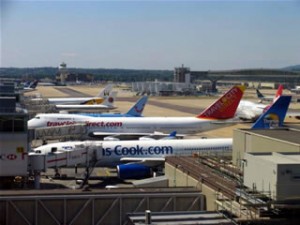 The British Government is being urged to abolish a $20bn-a-year “hidden subsidy” to the airline industry, which is due to the fact airlines do not pay fuel duty or VAT on the fuel for its planes.
The British Government is being urged to abolish a $20bn-a-year “hidden subsidy” to the airline industry, which is due to the fact airlines do not pay fuel duty or VAT on the fuel for its planes.
“This is a massive public subsidy for an industry that is one of the fastest-growing contributors to climate change,” argues the Lib Dem MP Norman Baker, the party’s transport spokesman, “Ordinary motorists continue to pay fuel tax, so why should aviation continue to be exempt?”
Mr Baker called on the Government to push for an international agreement to tax aviation fuel to put the industry on a “level playing field” with other modes of transport. The figures show that the amount of aviation fuel used in the UK has risen by 50 per cent – from 8.45 million tonnes to 12.69 million tonnes – since 1997.

Once again, the Independent, which carried this piece, has been duped by anti-aviation campaigners. I don’t support either side, but two facts put a rather different gloss on the “£10bn subsidy” claim:
First, it is misleading to compare airliners with private cars. Air travel is a mass public transport mode and is directly comparable with buses or trains. Private jets and light aircraft might be set alongside cars, but an airliner carrying 300 passengers?
Second, the person who came up with the “subsidy” maths deliberately failed to compare aviation with rail or buses, both of which pay little tax on their fuel and receive enormous subsidies. The most recent side by side assessment showed that air passengers contribute £4.15 each per journey to the Exchequer (and that will almost double when the Treasury “reforms” Air Passenger Duty), whereas rail passengers receive £1.69 and bus passengers get £0.15. If rail contributed tax to the Exchequer at the same rate per journey as air travel, the average rail journey would cost 50% more than at present.
Another inconvenient truth…